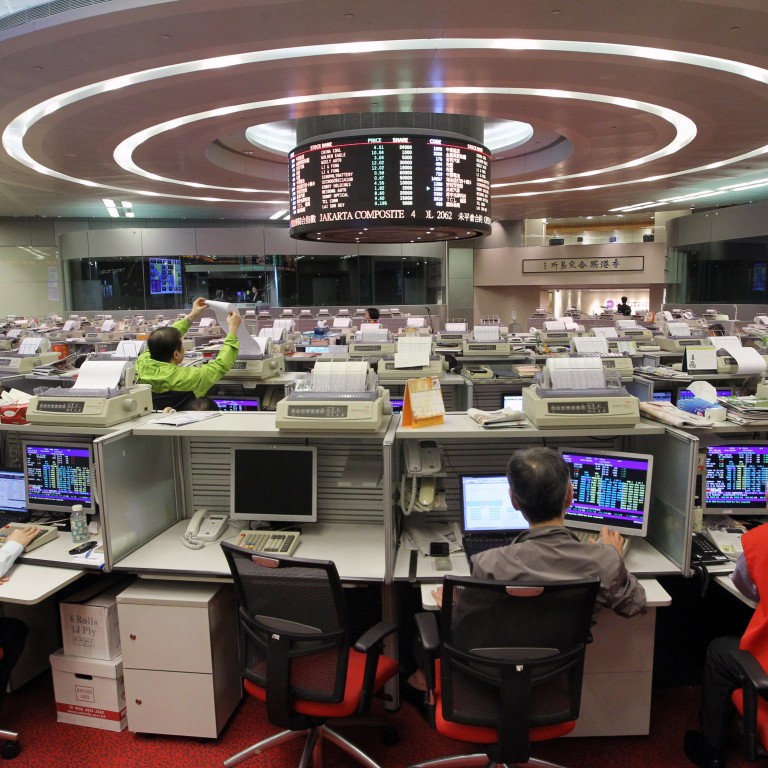
Small brokers expand share of equity market in Hong Kong
The market share of the smallest brokers in the city has risen to its highest level since 2010 while those of the largest brokers has dropped to its lowest level in the same period of time.
The Hong Kong market is becoming more and more like the mainland A-shares market which is dominated by retail investors. The city’s small brokers largely serve retail customers while the biggest players serve institutional investors.
The city’s smallest group of 435 brokers, called by the exchange as Category C brokers, has reported a market share at 12.59 per cent in April when the stock rally hoisted the Hang Seng Index to a seven-year peak, according to exchange data released last week.
The top 14 largest brokers, usually called as category A brokers, saw their market share down to 51.31 per cent which is the lowest level in five years. Their usual market share would range between 53 to 57 per cent.
The medium sized brokers who ranked between 15th to 65th and classified as Category B brokers, saw their market share rise to 36.1 per cent in April. Their share has usually stayed between 32 to 36 per cent over the past decade.
The market share of the three group of brokers are reliable indicators whether the city’s market is dominated by retail investors or fund managers.
In the early 1990s, the trio’s share was roughly at 33 per cent each.
At the height of the dotcom bubble, retail investors became the biggest group with a market share of 40 per cent. The share of the largest 14 brokers sank to only 27.94 per cent, under the medium sized group B brokers at 32.29 per cent.
That is history. When dotcom bubble burst in 2000, the share of the group C brokers dropped back to 26.91 per cent, while the group A brokers climbed back to 41.50 per cent.
The dominance of the A brokers has been unshakeable with their market share hovering between 50 to 55 per cent over the past 10 years. The development of internet trading and the fact that the city has attracted more fund managers has boosted their market share.
With the rally, it is not surprising that the share of group C brokers has begun rising and has surpassed their market share in the last equity rally in 2007.
For the small brokers, the surge in bringing in stronger levels of income. For regulators, they would find their lives busy as they would need to handle alleged market manipulation and market volatility.
It may also be time for the stock exchange to seek ways on how to improve its trading rules and other reforms to make sure it can attract more institutional investors so it can be more developed like New York or London. Otherwise, Hong Kong is going to be more like the Shanghai or Shenzhen A-shares market instead.

